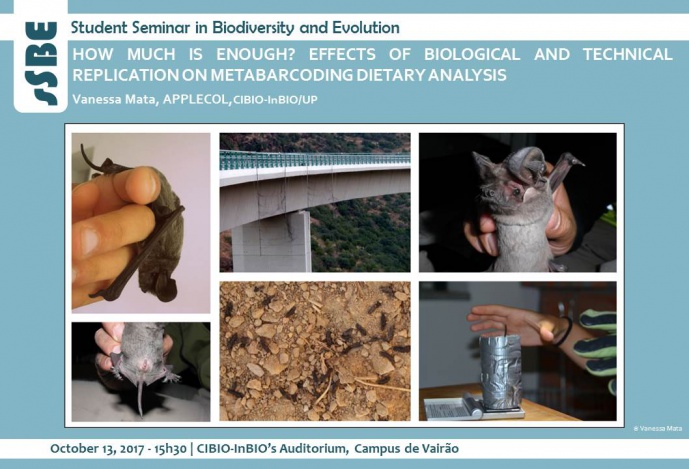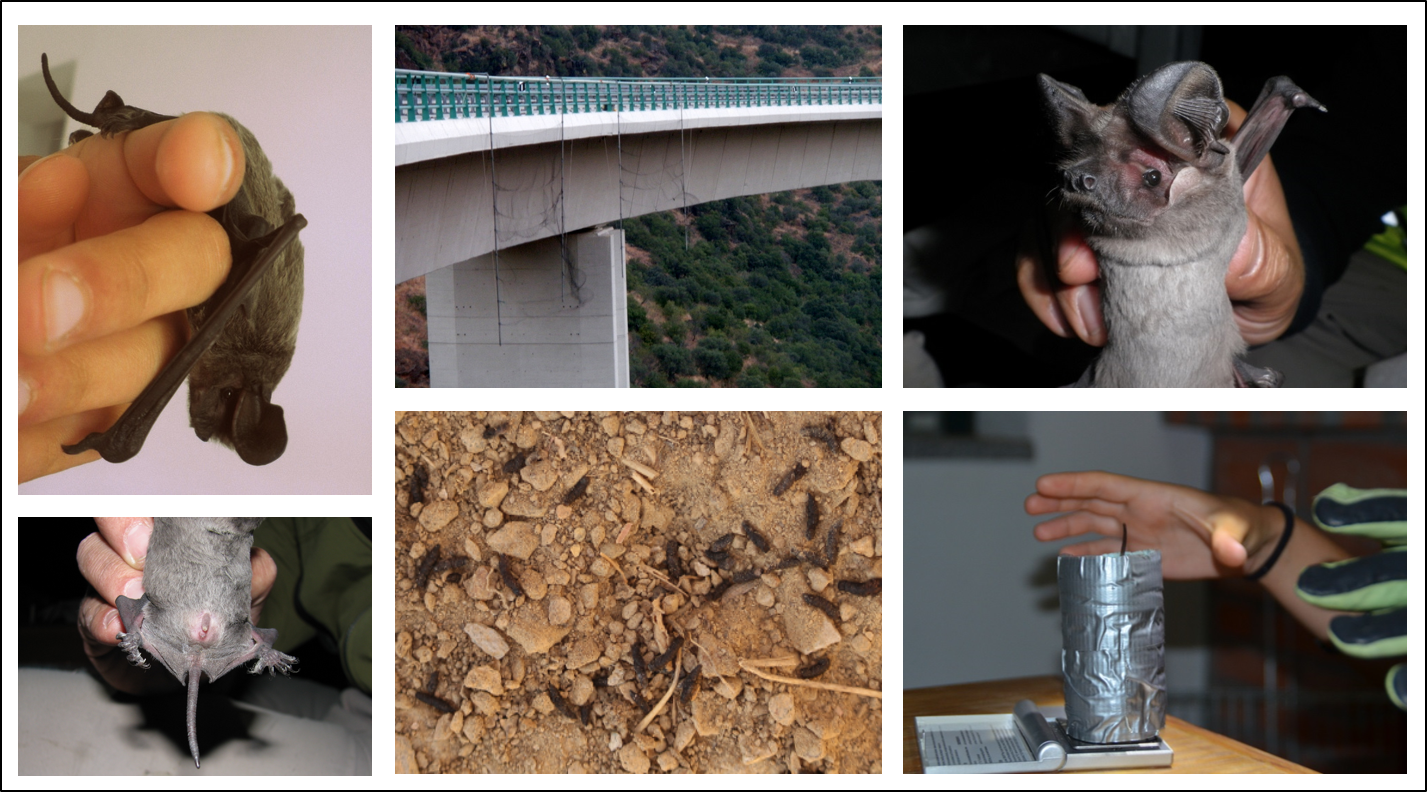HOW MUCH IS ENOUGH? EFFECTS OF BIOLOGICAL AND TECHNICAL REPLICATION ON METABARCODING DIETARY ANALYSIS

STUDENT SEMINAR IN BIODIVERSITY AND EVOLUTION

DNA metabarcoding is increasingly used in dietary studies to estimate the diversity of prey items consumed, the frequency of occurrence of each prey item (FO), and variations in prey composition among samples. However, few studies have assessed the impacts on dietary analysis of allocating efforts to either technical or biological replication, or both. Here we address these issues by using the diet of the European free-tailed bat Tadarida teniotis to investigate the effects of (i) the number of PCR replicates per faecal pellets, (ii) the analysis of pooled versus single pellets, and (iii) the number of pellets per bat. The study involved high-throughput sequencing of a small fragment of the COI gene in 30 pellets per each of 20 bats. We found that irrespective of coverage, the estimated number of prey items per bat using a pool of 15 pellets was similar to a single pellet, while eight pellets were needed to detect ca.80% of prey items per bat. The accuracy of FO estimates across bats increased with the number of pellets analysed per bat, though error rates varied widely across prey items, and were always high for pooled samples. Most variation (93.4%) in diet composition was due to differences among individuals, followed by pellets (6.1%) and PCR replicates (0.5%). Overall, our results stress that maximizing the number of individuals sampled is critical in dietary metabarcoding studies, and emphasize that the analysis of several samples per individual rather than pooled samples produce more accurate results.
Vanessa Mata holds a MSc in Biodiversity, Genetics and Evolution from the University of Porto, Portugal. Currently, Vanessa Mata is enrolled in the BIODIV program at her 3rd year under the supervision of Dr. Pedro Beja (CIBIO-InBIO - Applied Ecology), Dr. Hugo Rebelo (CIBIO-InBIO - CONGEN) and Dr. Gary McCracken (University of Tennessee, USA). Her PhD project is focused on the role of bats as providers of ecosystem services in agricultural fragmented landscapes
[Host: Sandra Aresta, EnvMetaGen Project]
Image credits: Vanessa Mata